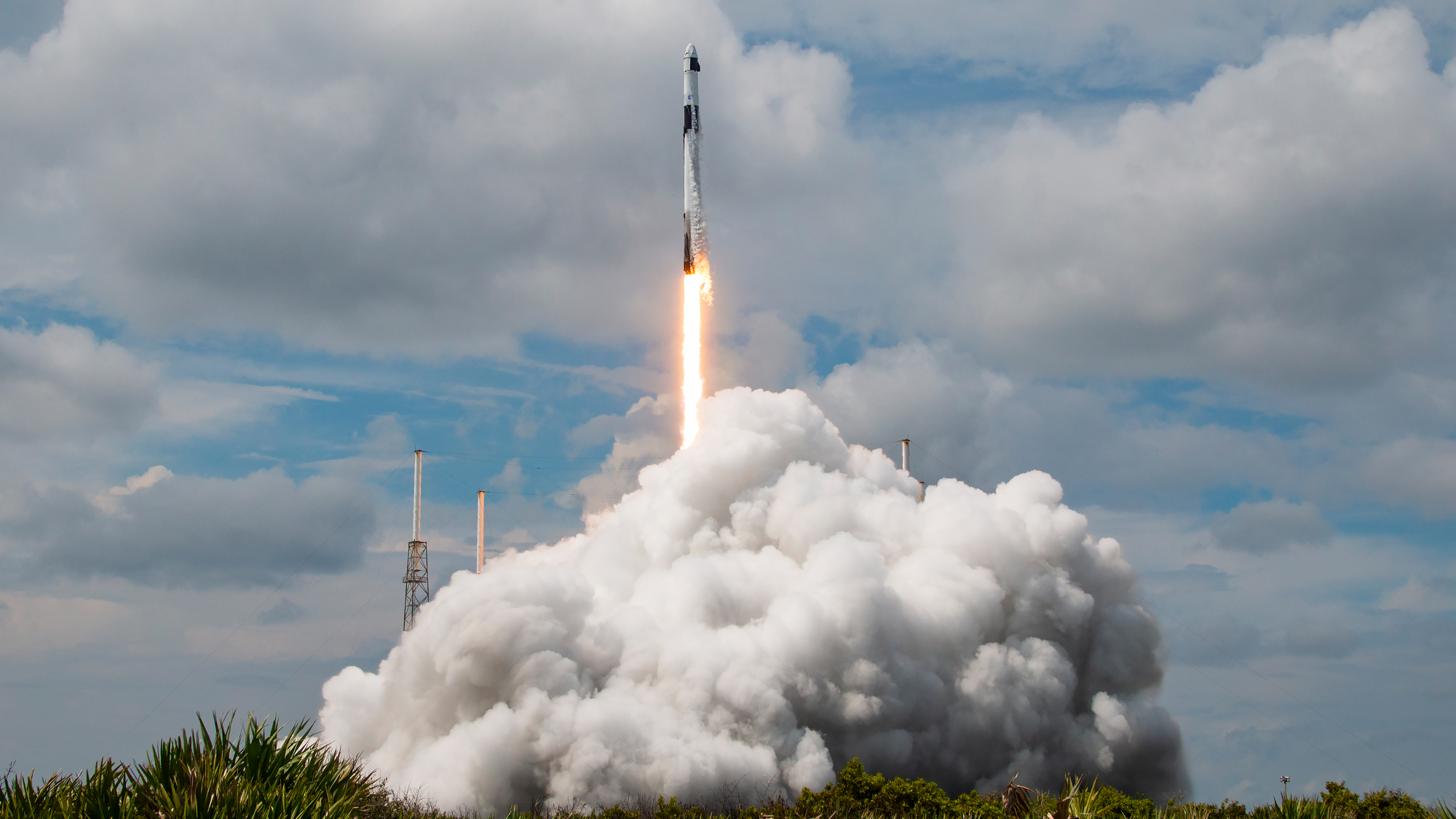FAA requires investigation of anomaly on SpaceX's Crew-9 astronaut launch

The U.S. Federal Aviation Administration (FAA) is requiring an investigation of the anomaly a SpaceX Falcon 9 rocket experienced during the Crew-9 astronaut launch on Sept. 28.
That liftoff successfully sent a Crew Dragon capsule carrying NASA astronaut Nick Hague and Russian cosmonaut Aleksandr Gorbunov toward the International Space Station. However, the Falcon 9's upper stage suffered an issue after deploying the capsule, SpaceX revealed on Sept. 29. The issue was an "off-nominal deorbit burn," which resulted in the upper stage landing in the ocean outside of its target disposal area. (The Falcon 9's first stage is reusable, but its upper stage is not.)
SpaceX is pausing launches while it looks into the issue. The company's investigation will be overseen by the FAA, which said the inquiry is not optional.
Related: SpaceX Crew-9 astronaut mission: Live updates
"The FAA is aware an anomaly occurred during the SpaceX NASA Crew-9 mission that launched from Cape Canaveral Space Force Station in Florida on September 28. The incident involved the Falcon 9 second stage landing outside of the designated hazard area. No public injuries or public property damage have been reported. The FAA is requiring an investigation," agency officials wrote in an update.
The Crew-9 anomaly was the third Falcon 9 issue that SpaceX has experienced in less than three months. On July 11, the rocket's upper stage sprang a liquid-oxygen leak that resulted in the loss of 20 of the company's Starlink internet satellites.
That incident grounded the Falcon 9 for two weeks. Then, on Aug. 28, a Falcon 9 first stage failed its landing attempt after a successful Starlink launch (which was the record-setting 23rd liftoff for that particular booster). SpaceX stood down for just a few days after the mishap, returning to flight on Aug. 31.
Breaking space news, the latest updates on rocket launches, skywatching events and more!
It's unclear how long the current hiatus will last, or how it will affect SpaceX's always-busy launch manifest. The company has some very high-profile liftoffs planned for this month, including that of NASA's Europa Clipper mission, which is scheduled to launch toward the icy Jupiter ocean moon Europa atop a Falcon Heavy rocket during a 21-day window that opens on Oct. 10. The Falcon Heavy and the Falcon 9 use the same upper stage.

Michael Wall is a Senior Space Writer with Space.com and joined the team in 2010. He primarily covers exoplanets, spaceflight and military space, but has been known to dabble in the space art beat. His book about the search for alien life, "Out There," was published on Nov. 13, 2018. Before becoming a science writer, Michael worked as a herpetologist and wildlife biologist. He has a Ph.D. in evolutionary biology from the University of Sydney, Australia, a bachelor's degree from the University of Arizona, and a graduate certificate in science writing from the University of California, Santa Cruz. To find out what his latest project is, you can follow Michael on Twitter.
